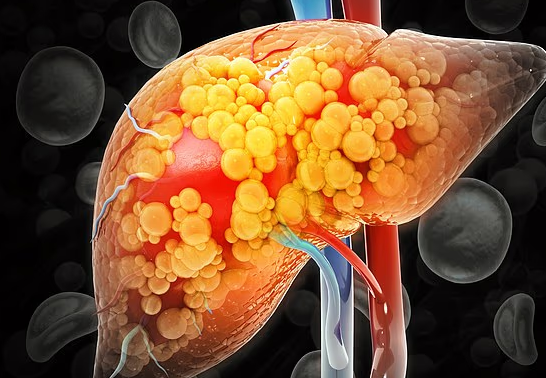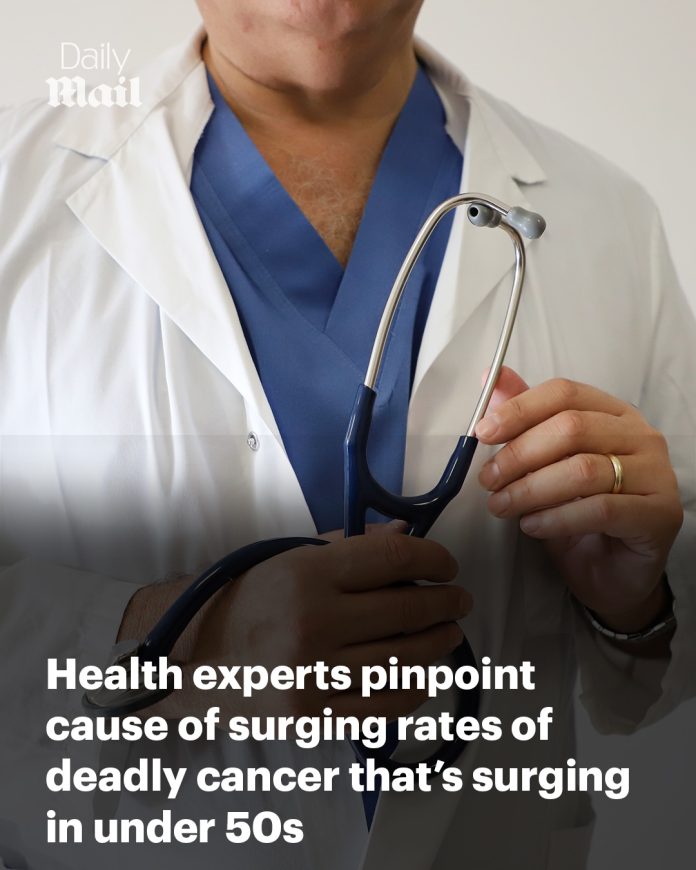Liver cancer is rapidly becoming one of the most concerning health issues globally. Once considered a relatively rare form of cancer, it is now seeing a sharp increase—particularly among adults in their 50s and even younger. One of the key contributors behind this alarming trend is the global rise in obesity and metabolic disorders.
Obesity doesn’t just affect outward appearance or increase the risk of heart disease—it also takes a heavy toll on the liver. When the body accumulates too much fat, a portion of it often ends up stored in the liver, leading to a condition now known as metabolic dysfunction–associated steatotic liver disease (MASLD). This condition was previously called non-alcoholic fatty liver disease.
MASLD is often silent in its early stages, showing few or no symptoms. However, over time, it can progress to a more severe condition marked by inflammation and liver cell injury. In some individuals, this advanced stage can cause scarring (fibrosis), cirrhosis, and eventually lead to liver cancer, particularly hepatocellular carcinoma.

Health statistics indicate a rising number of liver cancer diagnoses among middle-aged adults. In the past, the disease was more commonly linked to long-term alcohol abuse or viral infections like hepatitis B or C. Today, however, metabolic issues tied to obesity are becoming the dominant driver.
This shift in risk factors signals a troubling development: many people may be unaware they are at risk, especially if they don’t drink alcohol or have a history of liver disease. Yet, simply being overweight or having type 2 diabetes can silently raise liver cancer risk over the years.
Why Fat Is So Dangerous to the Liver
The liver plays a crucial role in detoxifying the blood, processing nutrients, and supporting metabolic balance. When too much fat builds up, it can trigger chronic inflammation and oxidative stress, damaging healthy liver tissue. In some cases, even without complete liver scarring, individuals can develop cancer due to ongoing cellular stress and mutation risk.
Obesity also disrupts hormonal balance and insulin sensitivity, both of which can impair the body’s ability to regulate cell growth. Over time, this environment creates a perfect storm for abnormal, cancerous cells to take root and spread.
Difficult to Detect, Often Found Too Late
One of the biggest challenges with liver cancer is that it usually does not cause symptoms in its early stages. By the time signs like abdominal pain, fatigue, unexplained weight loss, yellowing of the skin (jaundice), or swelling appear, the cancer is often advanced. At that point, treatment becomes much more difficult, and survival rates are significantly lower.
This delayed detection is particularly dangerous when combined with silent conditions like MASLD, which may not show up on standard blood tests until damage is already done.
The good news is that liver cancer is one of the most preventable cancers, especially when related to obesity and metabolic dysfunction. Making proactive lifestyle changes can dramatically reduce your risk:
- Maintain a healthy body weight through regular physical activity.
- Eat a balanced diet rich in vegetables, whole grains, lean proteins, and healthy fats.
- Limit the intake of processed foods, added sugars, and refined carbohydrates.
- Avoid excessive alcohol consumption.
- Monitor blood sugar, cholesterol, and liver enzyme levels regularly if you’re at risk.
Losing even a small amount of weight can lead to measurable improvements in liver health, especially when combined with an anti-inflammatory eating plan.

A Warning for Younger Generations
Alarmingly, it’s not just older adults who are at risk anymore. Younger generations who have grown up with high-sugar diets, sedentary lifestyles, and rising obesity rates are showing earlier signs of liver damage. Millennials and Generation X may be facing higher rates of metabolic cancers than their parents did, making prevention efforts more urgent than ever.
The rise of liver cancer among people in their 50s and younger is a powerful reminder of how deeply lifestyle choices impact long-term health. Obesity is no longer just a cosmetic issue—it is a direct contributor to serious, life-threatening conditions, including cancer.
By recognizing the signs early and making informed choices, individuals can protect their liver, reduce cancer risk, and support a longer, healthier life. The solution is not in fear, but in taking back control of your health—one choice at a time.

















